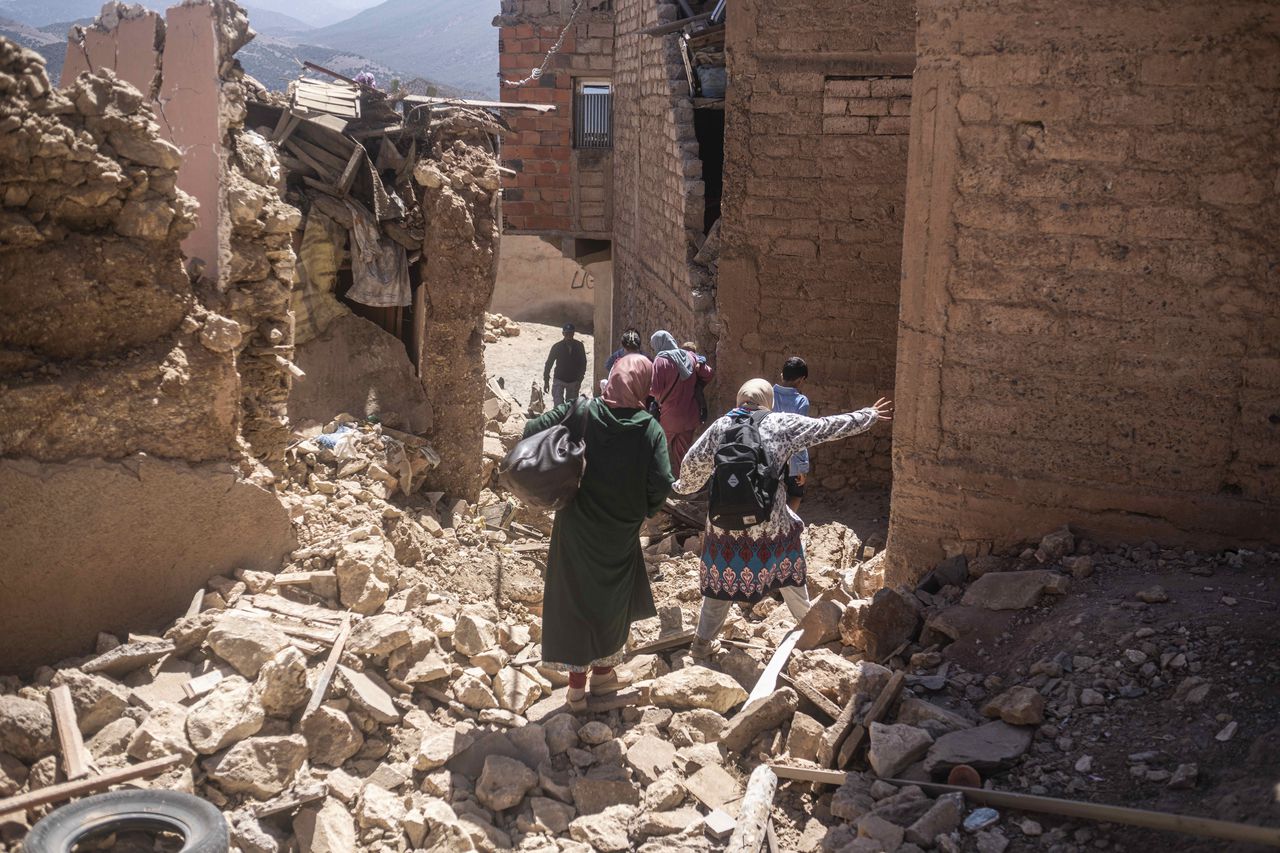Moroccans in the U.S. spearhead donation drives for communities affected by 6.8-magnitude earthquake
After word of Friday’s 6.8-magnitude earthquake in Morocco made its way across the Atlantic, Moroccans in the U.S. were horrified.
For many, the initial response was to find out if family members were OK. Then, it was to find ways to help.
Youssef Zeroual, who lives in Burke, Va. but was born in Casablanca, started a GoFundMe. Though the quake was felt in his hometown and in Marrakesh, its most devastating effects were seen in the Al Haouz province, located in the Atlas Mountains where remote villages were turned to rubble by its impact.
Zeroual has reached $12,118 of his $50,000 goal. He wants the funds to go to Jood, a Moroccan nonprofit distributing aid to survivors.
“It was a shock to all of us,” he said, describing his initial reaction to the news. “Morocco is not a place where you expect an earthquake.”
Still, he said it’s great to see how people from across the world are coming together to help. Most of the survivors were left to grapple with the earthquake’s aftermath on their own.
In some areas, residents rescued people trapped under buildings and buried their dead long before emergency services showed up. Mohammed VI, the country’s King, was in France when the quake happened. This stalled the mobilization of emergency resources, leading to backlash the world over.
In Morocco, only the sovereign determines how the country reacts to important matters, including natural disasters.
“From the first seconds this devastating earthquake occurred and in following the instructions of His Royal Majesty, all civil and military authorities and medical staff, military and civil, have worked on the swift and effective intervention to rescue the victims and recover the bodies of the martyrs,” Mustapha Baitas, a government spokesperson said in response to the criticism, according to various news outlets.
Morocco has also accepted aid from the United Kingdom, Spain, Qatar and UAE.
Friday’s earthquake was the strongest the country has seen in over a century. About 3,000 people died and thousands more were injured, according to state figures reported by international media outlets.
It’s not clear exactly how many have been displaced.
Zeroual said he’s glad that the event wasn’t more catastrophic.
“We’re just thankful that that earthquake didn’t make a lot of damage in Marrakesh because we wouldn’t be talking about a few thousand victims, we’d be talking about tens of thousands of victims.” The city has a population of about one million.
The realtor said he’s seen some of the villages in the area. He remembers traveling through the mountains as a child on his way to his mom’s favorite restaurant in Ouirgane, a town that was severely destroyed in the quake.
He recalled overlooking the mountainside and spotting women washing their clothes in the river. “It’s pretty neat,” he said.
Now, parts of the village are gone.
When asked about the government’s response to the tragedy, Zeroual said he thinks that the military should’ve been involved directly after the earthquake.
“The response was kind of slower than it should have been,” he commented.
But not everyone thinks that the criticism against the government is fair.
“It doesn’t matter what you do, you’re gonna get it,” Sam Barg, a member of the Moroccan American Association in Austin, said of the criticism. “From what I’m seeing online, they’re doing what they’re supposed to.”
He first heard about the earthquake Friday over the internet. He called friends in the area to make sure they were OK.
Wanting to help, he decided to send his parents $350 to donate to organizations in the area assisting survivors. He said mini buses carrying donations left his parents’ neighborhood in Tetouan Monday and drove all the way to Marrakesh, a distance of about 400 miles.
“A lot of people here in the U.S. are sending donations and trying to help as much as possible,” Barg said.
Even though the destruction appears insurmountable, he’s hopeful that the affected villages will be restored.
“I have faith in the government,” he said. “I feel like it’s going to take time to rebuild stuff, but I think we can begin to rebuild better than it was before.”
